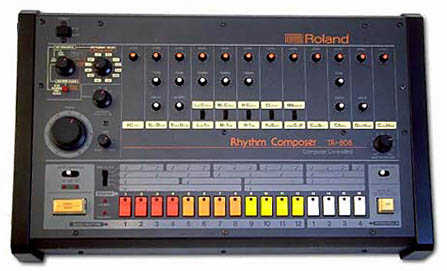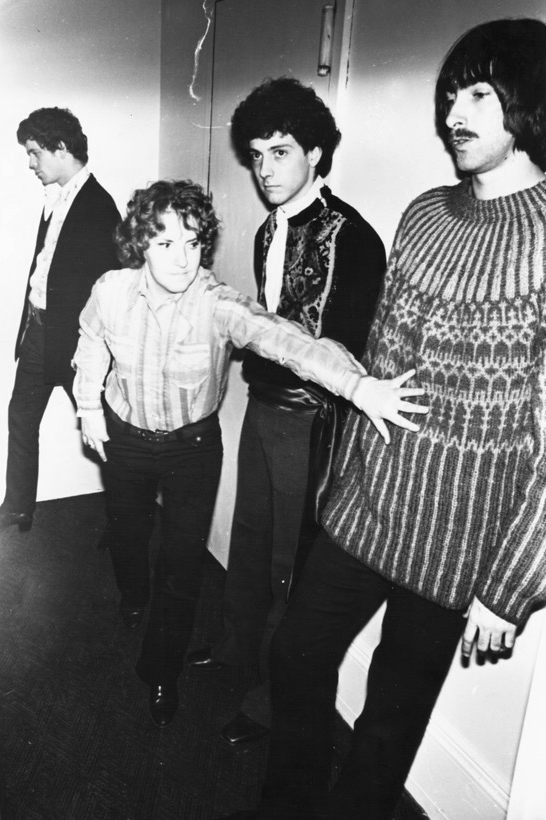|
Blackstar (song)
"Blackstar" (stylised as "★") is a song by English rock musician David Bowie. It was released as the lead single from his twenty-sixth and final studio album of the same name on 19 November 2015. "Blackstar" peaked at number 61 on the UK Singles Chart, number 70 on the French Singles Chart and number 78 on the ''Billboard'' Hot 100. "Blackstar" received both the Grammy Award for Best Rock Song and the Grammy Award for Best Rock Performance at the 59th Grammy Awards. At 9:57, it was the longest song to enter the ''Billboard'' Hot 100 charts, overtaking Harry Chapin's "A Better Place to Be", until Tool broke the record in 2019 with "Fear Inoculum". Production and composition "Blackstar" is an art rock and avant-garde jazz song. Also described as an " avant jazz sci-fi torch song," it features a " drum and bass rhythm, two-note tonal melody with hints of Gregorian chant, ndshifting time signatures." In the bluesy slow middle section, the song shifts from an acid house-ish ... [...More Info...] [...Related Items...] OR: [Wikipedia] [Google] [Baidu] |
David Bowie
David Robert Jones (8 January 194710 January 2016), known professionally as David Bowie ( ), was an English singer-songwriter and actor. A leading figure in the music industry, he is regarded as one of the most influential musicians of the 20th century. Bowie was acclaimed by critics and musicians, particularly for his innovative work during the 1970s. His career was marked by reinvention and visual presentation, and his music and stagecraft had a significant impact on popular music. Bowie developed an interest in music from an early age. He studied art, music and design before embarking on a professional career as a musician in 1963. "Space Oddity", released in 1969, was his first top-five entry on the UK Singles Chart. After a period of experimentation, he re-emerged in 1972 during the glam rock era with his flamboyant and androgynous alter ego Ziggy Stardust (character), Ziggy Stardust. The character was spearheaded by the success of Bowie's single "Starman (song), Starma ... [...More Info...] [...Related Items...] OR: [Wikipedia] [Google] [Baidu] |
Harry Chapin
Harold Forster Chapin (; December 7, 1942 – July 16, 1981) was an American singer-songwriter, philanthropist, and hunger activist best known for his folk rock and pop rock songs. He achieved worldwide success in the 1970s. Chapin, a Grammy Award-winning artist and Grammy Hall of Fame inductee, has sold over 16 million records worldwide. Chapin recorded a total of 11 albums from 1972 until his death in 1981. All 14 singles that he released became hits on at least one national music chart. As a dedicated humanitarian, Chapin fought to end world hunger. He was a key participant in the creation of the Presidential Commission on World Hunger in 1977. In 1987, Chapin was posthumously awarded the Congressional Gold Medal for his humanitarian work. Biography Harry Forster Chapin was born on December 7, 1942 in New York City, the second of four children of legendary percussionist Jim Chapin and Jeanne Elspeth, daughter of the literary critic Kenneth Burke. His brothers, Tom and ... [...More Info...] [...Related Items...] OR: [Wikipedia] [Google] [Baidu] |
Blues
Blues is a music genre and musical form which originated in the Deep South of the United States around the 1860s. Blues incorporated spirituals, work songs, field hollers, shouts, chants, and rhymed simple narrative ballads from the African-American culture. The blues form is ubiquitous in jazz, rhythm and blues, and rock and roll, and is characterized by the call-and-response pattern (the blues scale and specific chord progressions) of which the twelve-bar blues is the most common. Blue notes (or "worried notes"), usually thirds, fifths or sevenths flattened in pitch, are also an essential part of the sound. Blues shuffles or walking bass reinforce the trance-like rhythm and form a repetitive effect known as the groove. Blues as a genre is also characterized by its lyrics, bass lines, and instrumentation. Early traditional blues verses consisted of a single line repeated four times. It was only in the first decades of the 20th century that the most common current str ... [...More Info...] [...Related Items...] OR: [Wikipedia] [Google] [Baidu] |
The Daily Telegraph
''The Daily Telegraph'', known online and elsewhere as ''The Telegraph'', is a national British daily broadsheet newspaper published in London by Telegraph Media Group and distributed across the United Kingdom and internationally. It was founded by Arthur B. Sleigh in 1855 as ''The Daily Telegraph & Courier''. Considered a newspaper of record over ''The Times'' in the UK in the years up to 1997, ''The Telegraph'' generally has a reputation for high-quality journalism, and has been described as being "one of the world's great titles". The paper's motto, "Was, is, and will be", appears in the editorial pages and has featured in every edition of the newspaper since 19 April 1858. The paper had a circulation of 363,183 in December 2018, descending further until it withdrew from newspaper circulation audits in 2019, having declined almost 80%, from 1.4 million in 1980.United Newspapers PLC and Fleet Holdings PLC', Monopolies and Mergers Commission (1985), pp. 5–16. Its si ... [...More Info...] [...Related Items...] OR: [Wikipedia] [Google] [Baidu] |
Gregorian Chant
Gregorian chant is the central tradition of Western plainchant, a form of monophonic, unaccompanied sacred song in Latin (and occasionally Greek) of the Roman Catholic Church. Gregorian chant developed mainly in western and central Europe during the 9th and 10th centuries, with later additions and redactions. Although popular legend credits Pope Gregory I with inventing Gregorian chant, scholars believe that it arose from a later Carolingian synthesis of the Old Roman chant and Gallican chant. Gregorian chants were organized initially into four, then eight, and finally 12 modes. Typical melodic features include a characteristic ambitus, and also characteristic intervallic patterns relative to a referential mode final, incipits and cadences, the use of reciting tones at a particular distance from the final, around which the other notes of the melody revolve, and a vocabulary of musical motifs woven together through a process called centonization to create families of related ch ... [...More Info...] [...Related Items...] OR: [Wikipedia] [Google] [Baidu] |
Drum And Bass
Drum and bass (also written as drum & bass or drum'n'bass and commonly abbreviated as D&B, DnB, or D'n'B) is a genre of electronic dance music characterized by fast breakbeats (typically 165–185 beats per minute) with heavy bass and sub-bass lines, samples, and synthesizers. The genre grew out of the UK's rave scene in the 1990s. The popularity of drum and bass at its commercial peak ran parallel to several other UK dance styles. A major influence was the original Jamaican dub and reggae sound that influenced jungle's bass-heavy sound. Another feature of the style is the complex syncopation of the drum tracks' breakbeat. Drum and bass subgenres include breakcore, ragga jungle, hardstep, darkstep, techstep, neurofunk, ambient drum and bass, liquid funk (a.k.a. liquid drum and bass), jump up, drumfunk, sambass, and drill 'n' bass. Drum and bass has influenced many other genres like hip hop, big beat, dubstep, house, trip hop, ambient music, techno, jazz, rock and pop. ... [...More Info...] [...Related Items...] OR: [Wikipedia] [Google] [Baidu] |
Torch Song
A torch song is a sentimental love song, typically one in which the singer laments an unrequited or lost love, either where one party is oblivious to the existence of the other, where one party has moved on, or where a romantic affair has affected the relationship.Allan Forte, M. R.: ''Listening to Classic American Popular Songs,'' p. 203. Yale University Press, 2001. The term comes from the saying, "Torch#Love, to carry a torch for someone", or to keep aflame the light of an unrequited love. It was first used by the cabaret singer Tommy Lyman in his praise of "My Melancholy Baby". The term is also explicitly cited in the song "Jim (song), Jim", popularized by versions by Dinah Shore, Billie Holiday, Sarah Vaughan and Ella Fitzgerald: Torch-singing is more of a niche than a genre and can stray from the traditional jazz-influenced style of singing; the American tradition of the torch song typically relies upon the melodic structure of the blues. An example of a collection is B ... [...More Info...] [...Related Items...] OR: [Wikipedia] [Google] [Baidu] |
Avant-jazz
Avant-garde jazz (also known as avant-jazz and experimental jazz) is a style of music and improvisation that combines avant-garde art music and composition with jazz. It originated in the early 1950s and developed through to the late 1960s. Originally synonymous with free jazz, much avant-garde jazz was distinct from that style. History 1950s Avant-garde jazz originated in the mid- to late 1950s among a group of improvisors who rejected the conventions of bebop and post bop in an effort to blur the division between the written and the spontaneous. Ornette Coleman and Cecil Taylor led the way, soon to be joined by John Coltrane. Some would come to apply it differently from free jazz, emphasizing structure and organization by the use of composed melodies, shifting but nevertheless predetermined meters and tonalities, and distinctions between soloists and accompaniment. 1960s In Chicago, the Association for the Advancement of Creative Musicians began pursuing their own variety of ... [...More Info...] [...Related Items...] OR: [Wikipedia] [Google] [Baidu] |
Consequence Of Sound
''Consequence'' (previously ''Consequence of Sound'') is an independently owned New York-based online magazine featuring news, editorials, and reviews of music, movies, and television. In addition, the website also features the Festival Outlook micro-site, which serves as an online database for music festival news and rumors. In 2018, Consequence of Sound launched Consequence Podcast Network. The website took its original name from the Regina Spektor song " Consequence of Sounds". History ''Consequence of Sound'' was founded in September 2007 by Alex Young, then a student at Fordham University in The Bronx, New York. In January 2008, Michael Roffman became Editor-in-Chief. In October 2014, ''Consequence of Sound'' began covering film and became a part of the Chicago Film Critics Association. In 2016, ''Consequence of Sound'' was reorganized under the umbrella of Consequence Media, a digital media, advertising, and marketing firm. In 2018, ''Consequence of Sound'' launched the ... [...More Info...] [...Related Items...] OR: [Wikipedia] [Google] [Baidu] |
Art Rock
Art rock is a subgenre of rock music that generally reflects a challenging or avant-garde approach to rock, or which makes use of modernist, experimental, or unconventional elements. Art rock aspires to elevate rock from entertainment to an artistic statement, opting for a more experimental and conceptual outlook on music."Art Rock" Encyclopædia Britannica. Retrieved 15 December 2011. Influences may be drawn from genres such as , avant-garde music, |
Billboard (magazine)
''Billboard'' (stylized as ''billboard'') is an American music and entertainment magazine published weekly by Penske Media Corporation. The magazine provides music charts, news, video, opinion, reviews, events, and style related to the music industry. Its music charts include the Hot 100, the 200, and the Global 200, tracking the most popular albums and songs in different genres of music. It also hosts events, owns a publishing firm, and operates several TV shows. ''Billboard'' was founded in 1894 by William Donaldson and James Hennegan as a trade publication for bill posters. Donaldson later acquired Hennegan's interest in 1900 for $500. In the early years of the 20th century, it covered the entertainment industry, such as circuses, fairs, and burlesque shows, and also created a mail service for travelling entertainers. ''Billboard'' began focusing more on the music industry as the jukebox, phonograph, and radio became commonplace. Many topics it covered were spun-off ... [...More Info...] [...Related Items...] OR: [Wikipedia] [Google] [Baidu] |
.png)





